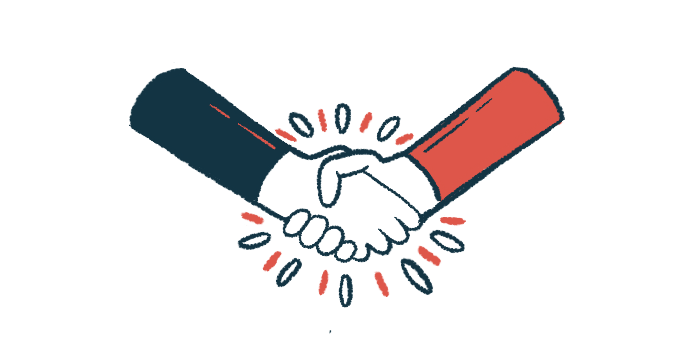Aitia and UCB team up to develop novel Huntington’s treatment
Companies to focus on therapeutic targets showing cause and effect
Written by |

The biopharmaceutical UCB and Aitia have joined forces to accelerate the development of a novel Huntington’s disease treatment.
The collaboration will harness Aitia’s artificial intelligence (AI) technology to identify new targets and therapies for Huntington’s that will be further validated using UCB’s expertise in treatment research and preclinical models of neurodegeneration.
The companies will focus mainly on therapeutic targets showing cause-and-effect relationships with Huntington’s clinical outcomes.
“We are pleased to work with Aitia in a bid to unravel the circuity of this debilitating disease,” Dhaval Patel, MD, PhD, UCB’s executive vice president and chief scientific officer, said in a joint press release.
“We see this collaboration as an investment in next generation science and technology, allowing us to accelerate our understanding of human [disease] and explore the potential of developing novel medicines through AI,” Patel added.
Aitia brings to the partnership its Gemini Digital Twins platform. It combines multi-omics — the comprehensive analysis of different biological datasets — and patient clinical data with the company’s patented causal AI and simulation technology, dubbed REFS.
Causal AI is a new branch of artificial intelligence that goes beyond establishing links between variables: It makes decisions and predictions based on cause and effect.
The platform identifies associations between patient features and therapies to unveil the complexity of the disease’s underlying mechanisms. Using simulation tools, it can predict how interfering with a certain gene or protein will affect a particular patient across large groups of them.
This may pave the way to discover new therapeutic targets “that would otherwise remain hidden for decades,” Aitia states on its platform’s webpage.
We’re excited to collaborate closely with UCB to gain deeper insights into the underlying mechanisms of this complex disease and hope to drive major advancements in drug discovery and development faster than ever before.
“At Aitia, our mission is to discover the next generation of breakthrough drugs to improve outcomes for patients where there is high unmet need,” said Colin Hill, Aitia’s co-founder and CEO.
“We believe that Huntington’s disease is overdue for major disruption and breakthroughs from our Gemini Digital Twins which are created from large quantities of multi-omic patient data and causal AI,” Hill said.
The financial details of the partnership were not disclosed.
Besides Huntington’s, Aitia’s Gemini Digital Twins is being used to identify new targets and therapies in other neurodegenerative diseases such as Parkinson’s and Alzheimer’s, and certain types of cancer, including multiple myeloma and prostate cancer.
“We’re excited to collaborate closely with UCB to gain deeper insights into the underlying mechanisms of this complex disease [Huntington’s] and hope to drive major advancements in drug discovery and development faster than ever before,” Hill said.





